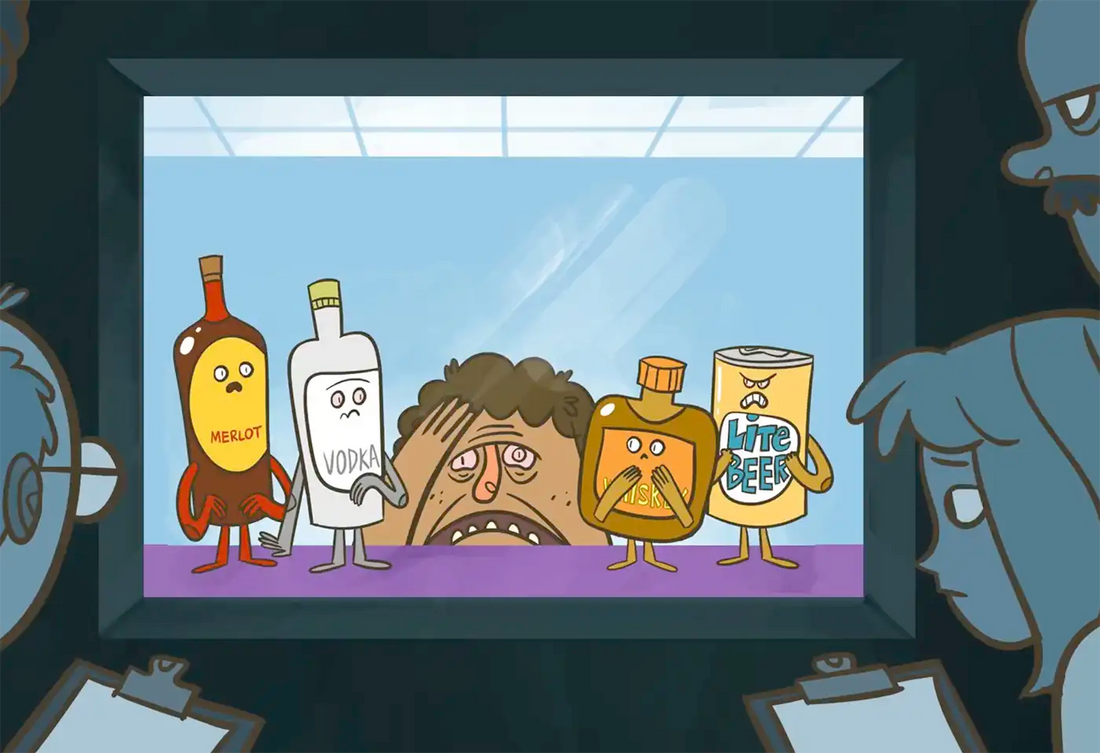
What Causes Hangovers and How Can You Prevent Them?
Share
Hangovers are caused by a molecule called ethanol—commonly known as alcohol. Ethanol is found in all alcoholic beverages, and generally, the higher the ethanol content, the greater the chance of experiencing a hangover. But how exactly does alcohol trigger hangover symptoms? And more importantly—is there a reliable way to prevent hangovers?
In a fascinating TED Talk, neuroscientist Judy Grisel explores the surprising science behind hangovers and how alcohol affects the brain and body.
A Look Back: The 1973 Hangover Study
In a 1973 study, 20 volunteers consumed alcohol once a week for 8 weeks. Each week, they drank a different type of alcoholic beverage, always with the exact same dosage. The goal was to determine which alcoholic drinks caused the worst hangovers.
While one small study isn’t definitive, it helped lay the groundwork for what we now know: hangovers are complex, and their causes go far beyond just drinking too much.
The Science Behind Hangovers
Ethanol—the primary ingredient in alcohol—is the main culprit behind hangovers. While everyone reacts differently based on factors like age, weight, and genetics, most hangovers include familiar symptoms: headaches, fatigue, nausea, dehydration, and brain fog.
So what’s actually happening inside your body after a night of drinking?
Alcohol’s Effects on the Brain and Body
After alcohol consumption, the central nervous system slows down. But once the body finishes processing the alcohol and blood alcohol levels return to zero, the brain swings into hyperactivity, leading to symptoms like:
- Tremors
- Rapid heartbeat
- Restless or poor-quality sleep
These effects are just the beginning. Alcohol disrupts multiple bodily systems:
Hormonal imbalance
Alcohol interferes with hormones like cortisol (which regulates sleep and alertness) and vasopressin (which controls urine production). This results in grogginess, frequent urination, and dehydration—a major contributor to hangover symptoms like dry mouth, weakness, and headaches.
Chemical signaling disruption
Alcohol alters neurotransmitters involved in pain signaling, increasing the risk of hangover headaches.
Mitochondrial damage
Alcohol impairs the function of mitochondria, the energy-producing parts of your cells. This can lead to fatigue, low energy, and mood swings.
Immune system activation
Alcohol triggers inflammation in the brain, which can affect mood, memory, and cognitive performance.
Gastrointestinal irritation
Alcohol can damage the stomach lining and slow down digestion, leading to nausea, stomach pain, and vomiting.
Do Certain Alcoholic Drinks Cause Worse Hangovers?
Yes—some alcoholic beverages are more likely to cause hangovers than others. That’s because alcohol contains more than just ethanol. During fermentation, congeners—chemical byproducts like methanol—are also produced. Methanol is especially linked to severe hangover symptoms.
- Drinks with fewer congeners (like vodka and gin) may cause milder hangovers.
- Drinks with higher congener content (like whiskey, brandy, and red wine) are more likely to trigger severe hangovers.
Still, even pure ethanol can lead to hangover symptoms. So while your drink of choice matters, all alcoholic beverages have the potential to cause hangovers.
Final Thoughts: Can You Prevent a Hangover?
There’s no guaranteed hangover cure, but understanding how alcohol affects your body can help you minimize hangover risk. Staying hydrated, eating before drinking, choosing low-congener drinks, and moderating alcohol intake are all smart ways to support your body.
If you’re curious about the latest science on hangovers, or you're searching for hangover remedies that actually work, check out more insights from experts like Judy Grisel and keep an eye on emerging research.
////
Disclaimer:
This content is provided for educational and informational purposes only and is not intended as medical advice. It should not be used to diagnose, treat, cure, or prevent any medical condition. Always seek the advice of a qualified healthcare provider with any questions you may have regarding a medical condition or treatment. Never disregard professional medical advice or delay in seeking it because of something you have read here.
